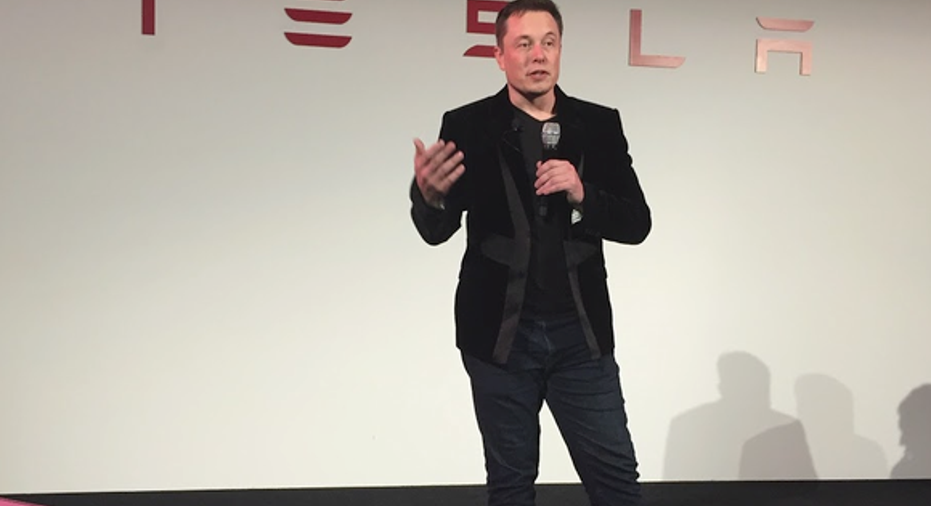Tesla's Musk Says New Autopilot Likely Would Have Prevented Death

Tesla Motors Co Chief Executive Elon Musk said on Sunday the automaker was updating its semi-autonomous driving system Autopilot with new limits on hands-off driving and other improvements that likely would have prevented a fatality in May.
Musk said the update, which will be available within a week or two through an "over-the-air" software update, would rely foremost on radar to give Tesla's electric luxury cars a better sense of what is around them and when to brake.
New restrictions of Autopilot 8.0 are a nod to widespread concerns that the system lulled users into a false sense of security through its "hands-off" driving capability. The updated system now will temporarily prevent drivers from using the system if they do not respond to audible warnings to take back control of the car.
"We're making much more effective use of radar," Musk told journalists on a phone call. "It will be a dramatic improvement in the safety of the system done entirely through software."
Tesla's Autopilot, introduced in October, has been the focus of intense scrutiny since it was revealed in July that a Tesla Model S driver, Joshua Brown, was killed while using the technology in a May 7 collision with a truck in Florida.
The National Highway Traffic Safety Administration (NHTSA) has been investigating Tesla's Autopilot system since June because of the fatal accident. The agency had been briefed on the changes by Tesla and would review them, spokesman Bryan Thomas said. He declined to offer an update on the Tesla investigation.
Musk said it was "very likely" the improved Autopilot would have prevented the death of Brown, whose car sped into the trailer of a truck crossing a highway, but he cautioned that the update "doesn't mean perfect safety."
"PROBABILITY OF SAFETY"
"Perfect safety is really an impossible goal," Musk said. "It's about improving the probability of safety. There won't ever be zero fatalities, there won't ever be zero injuries."
One of the main challenges of using cameras and radars for a braking system is how to prevent so-called false positives, in which a car might think an overhead highway sign, for example, was an obstacle to be avoided.
Using radar and fleet learning, rather than relying primarily on cameras, would solve that problem, Musk said.
"Anything metallic or dense, the radar system we're confident will be able to detect that and initiate a braking event," he said.
Silicon Valley-based Tesla is known for its innovation in luxury electric vehicles but some critics, including rival carmakers, have said it was hasty in rolling out Autopilot. Tesla stood by Autopilot after the fatality.
The revised system will sound warnings if drivers take their hands off the wheel for more than a minute at speeds above 45 miles per hour (72 kph) when there is no vehicle ahead, Musk said.
The warning will sound after the driver’s hands are off the wheel for more than three minutes when the Tesla is following another car at speeds above 45 mph. The dashboard also will flash a pulsing light.
If the driver ignores three audible warnings in an hour, the system will temporarily shut off until it is parked, Musk said.
Advanced Autopilot users, rather than new users, were most likely to ignore warnings to put their hands back on the wheel, Musk said.
Besides the fallout from the fatality, Musk has had to prepare for the Model 3 mass-market vehicle due late next year and completion of its Nevada battery factory, while trying to sell skeptical investors on the merits of a proposed acquisition of SolarCity.
On Sept. 1, SpaceX, where Musk serves as CEO, sustained what he later called "the most difficult and complex failure" in the commercial space company's history when a Falcon 9 rocket exploded on its launch pad in Cape Canaveral, Florida.
"One of the worst weeks ever, really," he told reporters.
Musk said he had wanted to improve Autopilot's capabilities last year but was told it was impossible to do so without incurring more "false positives," such as a car braking suddenly for a harmless tin can.
In July tweeted publicly that he was encouraged by talks with supplier Bosch about improvements to radar.
"I wish we could have done it earlier," he said on Sunday. "The perfect is the enemy of the good."
(Writing By Alexandria Sage; Editing by Bill Trott)



















